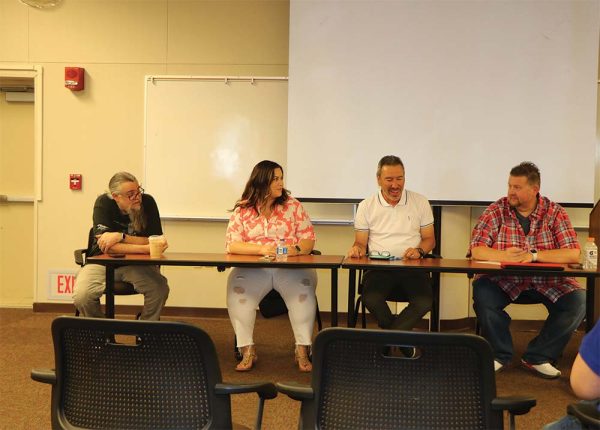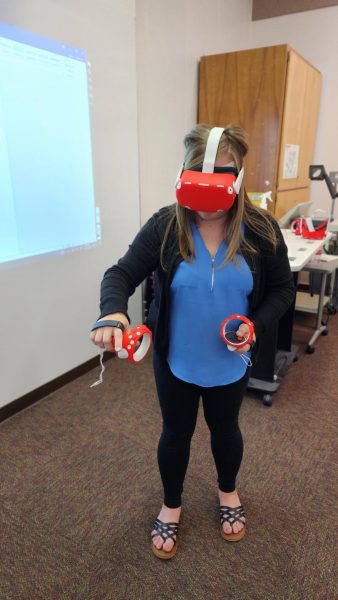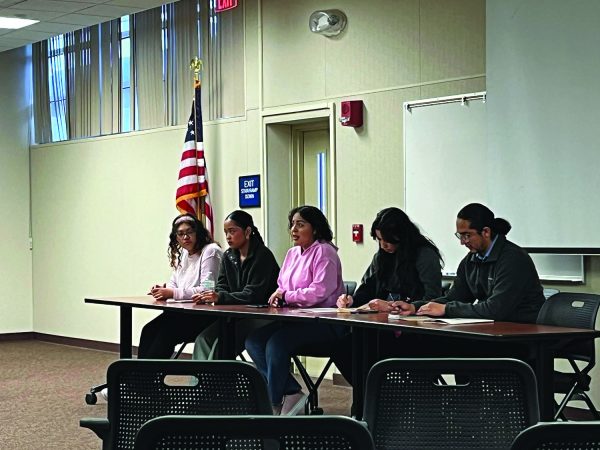BC students take third at Hackathon
December 2, 2016
Three Bakersfield College students competed on one of the winning teams of the Electric Bookworm Hackathon hosted by CSUB and the Kern Innovation & Technology Community over the weekend of Nov. 18.
The hackathon’s theme, library management, fueled the team’s project built from the ground up over only two days: a library chat bot.
Having the name of “hackathon” would normally suggest dubious security cracking, but the event better compares to a more traditional competition.
“It is really a design competition to have a product at the end of a 48-hour period,” said Eddy Rangel, assistant professor in Information Technology at BC. “It really is about a team coming together to take an idea from concept to implementation. It doesn’t have to be fully functional, but the goal is to deliver something.”
Diego Diaz, 22, is a computer science major at BC and one of the six members of the third place-winning team.
“I was extremely nervous to compete, because it was at CSUB, so I figured my skill level was not that of university students. But when I showed up, it was a great opportunity for me to improve in group work,” Diaz said.
Diaz’s team worked on a chat bot for the library that students would theoretically be able to ask questions regarding the library’s book collection and study rooms.
“When I talked to the librarian, I asked what some questions are that she often gets. And a lot of the questions she mentioned were simple ones like, ‘where can I find a book?’” said Diaz. The chat bot would be able to answer with the specific location of the book and its availability, including its floor number, ID number, etc.
The biggest problem Diaz’s team wanted the chat bot to tackle was CSUB’s study rooms, which can be reserved without any time limit by any student.
“I surveyed 16 students, and 14 of them mentioned booking a study room was a big problem. There will be people sleeping in the study rooms for hours and students will walk around for 30 minutes until they can find somewhere to study,” Diaz said.
“If you were to mention reserving a room, it would give you a link to a page where you can reserve your study room.”
The nature of their two-day time limit meant that Diaz’s team had to limit the scope of their initial plans.
“We kept taking out features here and there just to get a prototype working,” he said.
The judges were impressed by what they had accomplished with their time, even though it had been scaled down from their initial ambitions.
Diaz pointed to his teammate Sadoc Rosales, another BC student, as the biggest reason they placed in the top three.
“He’s an agriculture major, no experience in programming at all, and he happened to score us the most amount of points based on his presentation and community impact report,” he said. “There was a lot more to it than technology and presentation. There were reports we had to do and graphs we had to make for our research and he handled everything for that.”
Diaz began on the team as a programmer, but his role slowly transitioned to that of project manager over the hackathon’s two days.
“I was the guy that people were coming and asking questions to. We didn’t set it up that way, but it just happened to be the way it turned out,” he said.
Rangel and Diaz said that a BC hackathon is already in the works for the spring 2017 semester, and the theme will be centered on public health.










